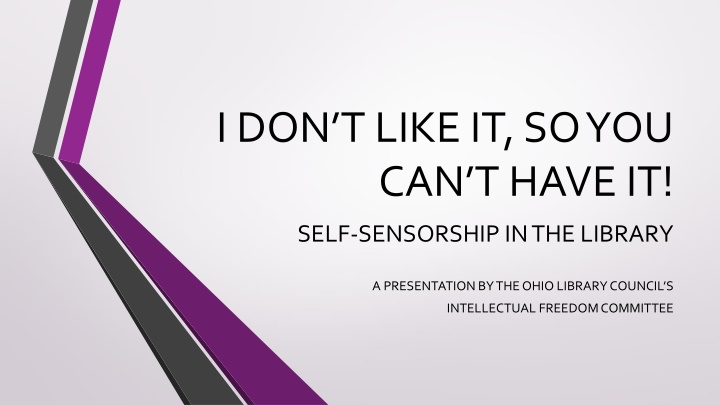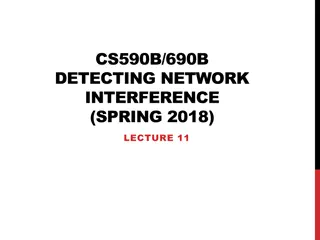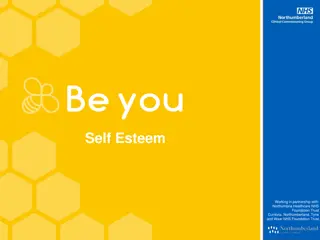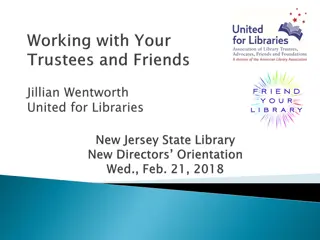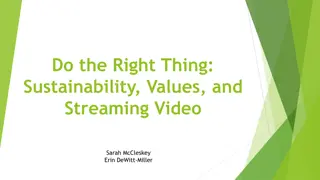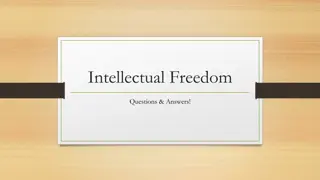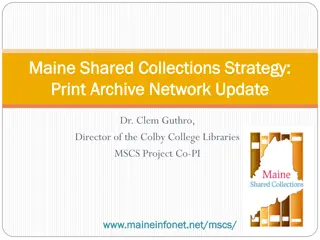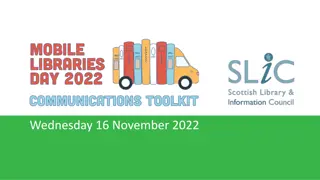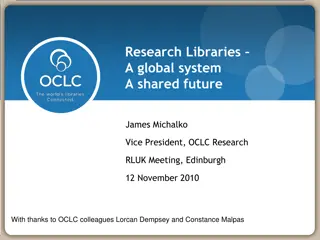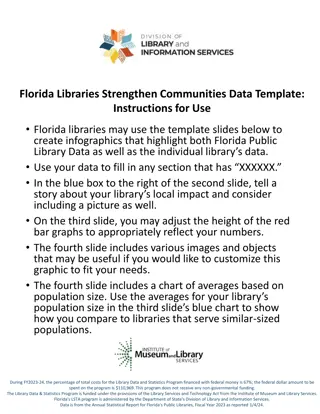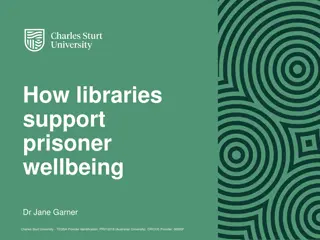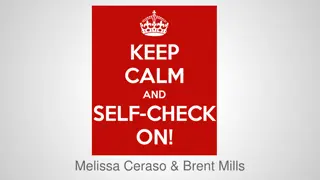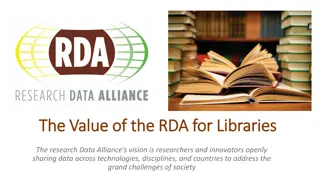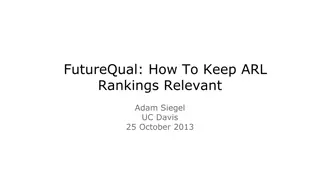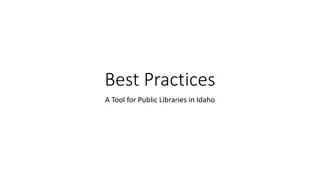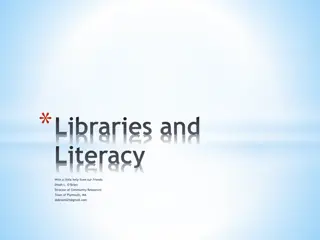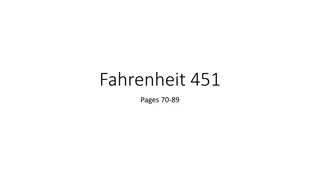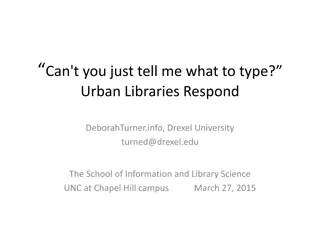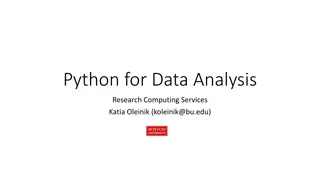The Impact of Self-Censorship in Libraries
Self-censorship in libraries can significantly affect the availability and diversity of materials, limiting access for patrons. By avoiding ordering controversial items, hiding displays, mislabeling genres, or misplacing books, librarians may unknowingly restrict information flow and hinder intellectual freedom within library collections.
Download Presentation

Please find below an Image/Link to download the presentation.
The content on the website is provided AS IS for your information and personal use only. It may not be sold, licensed, or shared on other websites without obtaining consent from the author.If you encounter any issues during the download, it is possible that the publisher has removed the file from their server.
You are allowed to download the files provided on this website for personal or commercial use, subject to the condition that they are used lawfully. All files are the property of their respective owners.
The content on the website is provided AS IS for your information and personal use only. It may not be sold, licensed, or shared on other websites without obtaining consent from the author.
E N D
Presentation Transcript
I DONT LIKE IT, SO YOU CAN T HAVE IT! SELF-SENSORSHIP IN THE LIBRARY A PRESENTATION BY THE OHIO LIBRARY COUNCIL S INTELLECTUAL FREEDOM COMMITTEE
Why Self-Censorship Matters It s the NUMBER ONE way in which materials are censored within libraries! Unlike externally imposed forms of censorship, it offers no review process. The only person/people who even know(s) the censorship took place is/are the librarian(s) involved. It can dramatically alter the library collections, cost libraries patrons, and make collections feel less friendly to populations who are historically underserved already.
Never Have I Ever Opted not to order something controversial because it won t circulate. Told myself we didn t need a book because it s poorly written. Reassured myself that I didn t have to order a certain title because we don t have people like that in our library. Shied away from ordering something because it will get stolen. Argued that I couldn t afford to purchase something controversial because the budget has been cut. Refused to make a purchase because of what it would say about me if I ordered it. Decided not to purchase a book because it contained unproven science. Let fear of a complaint or challenge guide my purchasing decisions. Let myself avoid ordering a book because I knew other libraries would have it.
Ordering the Materials Is Not Enough Often, materials are censored even after they have made it through the libraries doors: Intentionally poor displays that hide book covers or titles Misleading or assumptive genre or subject headings Intentional misplacement of books Age limits on materials imposed by the library rather than the parents Locking up controversial materials, or making patrons request them from staff Claiming titles are checked out or missing if the librarian decides the material is not appropriate for the patron seeking it
Book Presentation Displays: If you avoid creating certain displays, even if you know they are relevant, you are self-centering. If you intentionally place books so that they are hiding within the display you are self-censoring. Display space should, at varying times throughout the year, represent all library users. Genre & subject headings: Be cognizant of who your genre and subject headings are excluding and including, and whether that inclusion is always a good thing. Book placement in the collection: If the book is being marketed as a teen book, don t place it in the adult section just because the content is controversial. It can no longer be found easily by the target audience and is unlikely to get much traffic via the audience you ve forced it upon.
Materials Access Age Limits: If a parent wishes to impose age limits on certain material they may do so, either via age-restrictive library cards or (better yet) by being at the library and deciding, in person, what their child can take home. Requesting materials: Controversial materials that are not expensive and/or are not needed for routine reference questions should not be locked up or kept behind a reference desk, as it discourages use. I just don t want to give it to them!: Refusal to provide requested materials that are available in the system is a dereliction of your duty as an information professional.
Preventing Self-Censorship Know your biases Avoid genres or subcategories with unwanted implications Make sure you re not actively trying to hide books because they make you uncomfortable Always ask yourself why you ve excluded certain books or authors Have a formal complaint procedure that gets used EVERY TIME there is a materials challenge, no matter who the challenge comes from Make sure librarians and collection developers are not punished for complaints! Remember that it s not your job to tell people what type of information they can have
The Complaint Process In the event of a complaint, the following is an example process a library could follow to ensure all parties are treated fairly: Ensure the library has a detailed complaint form. Present the aggrieved with this form and ask that they fill it out. Gather a review panel. Regardless of the outcome, a detailed explanation should be made available to all library staff who wish to read it. If the patron elected to be notified of the outcome, a form letter detailing the review panel outcome should be sent.
The Complaint Form The Materials Request for Reconsideration form should contain, at a minimum, the following questions for the person making the request: Item title, author, and format Department item was found in Nature of the complaint/reason for the request Desired outcome
The Review Panel Any review panel gathered to process a request for reconsideration should consider the following questions, at a minimum: What is the nature of the complaint? What is wrong with the material? What is the desired outcome? Can this outcome be met without removing the item from the collection? Is this a complaint that a reasonable person could pose? Why did the staff member who ordered the material do so? What role or purpose did they foresee it having in the collection? Can the complaint be mitigated without violating the intellectual freedom of other library users?
Oh, No! This patron is complaining! What now? Possible patron complaints to look out for: This book/DVD/item offends me! Why did you order this? Who ordered this? I demand to speak to them. Please remove this item immediately. Who is reading this garbage? These items don t belong in the library.
Questions? Comments? Complaints? Stories and Examples?
For More Information: The Ohio Library Council s Intellectual Freedom Committee: http://olc.org/about-us/divisions/intellectual-freedom-committee/ The American Library Association s Intellectual Freedom Committee: http://www.ala.org/advocacy/intfreedom
